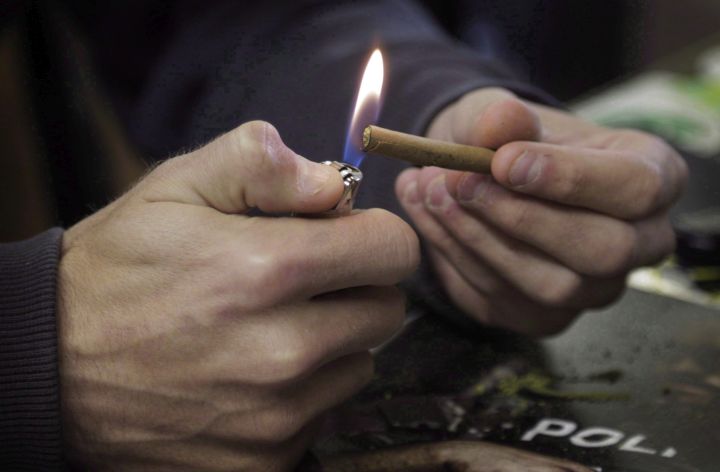With days to go until marijuana legalization, Conservatives are slamming a statement made by the justice minister this weekend that pot-impaired driving charges will be considered “on a case-by-case basis.”

In an interview with the West Block’s Mercedes Stephenson on Sunday, Justice Minister Jody Wilson-Raybould was asked to give a clear definition of exactly when a person will be charged for driving while high. While federal regulations point to limits on the amount of THC that can be in a person’s blood while driving, the minister said a decision on whether to lay charges will depend on the situation.
READ MORE: When will you be charged for driving after smoking pot? ‘It depends on a case-by-case basis’
But Conservative critics say her comments highlight the lack of a consistent method for police to measure cannabis impairment.
“Instead of focusing on how many tax dollars he can squeeze out of his policy, Justin Trudeau needs to listen to scientists, doctors, and law enforcement officials who have said that legalization is being rushed through without proper planning or consideration for the negative consequences, including keeping marijuana out of the hands of children, and profits out of the hands of criminals.”

Get daily National news
WATCH BELOW: Minister expects legal challenges when using blood samples for testing

At issue is the challenging nature of the way the body metabolizes marijuana and a lack of clear data about the varying effects of the drug.
Federal regulations state that it is illegal to drive with between 2.5 and five nanograms of THC per mililitre of blood.
THC is the active component in marijuana that provides the feeling of being high.
READ MORE: Almost 2 million Ontario drivers have driven under the influence of cannabis
Anyone caught driving with those blood THC levels can be charged with a summary offence, which is similar to the misdemeanor class of offences in the U.S.
But if someone is caught driving with more than the five nanogram limit after already being convicted of a summary offence, they can be indicted on impaired driving, which bumps the charge up to the class of offences comparable to those of felonies in the U.S.
However, THC can remain in the body for hours after being consumed.
WATCH BELOW: Flying high: rules surrounding passengers carrying cannabis at Canadian airports

Unlike alcohol, which is known to metabolize at specific rates depending on the person’s weight and how much was consumed, there is not yet a standard serving or rate of metabolization for marijuana.
That can make it difficult to assess how long ago someone smoked pot and whether they are still too high to drive.
Compounding the matter are the technical challenges in using the Drager, the roadside saliva tests approved for use by police.
That’s because there are reports it does not work well in cold temperatures, a reality that affects large areas of the country for a significant chunk of the year.
Wilson-Raybould has acknowledged the potential for legal challenges based on the reliability of the device but said police are also being trained to identify other physical signs of impairment as well.
Marijuana legalization will take place on Oct. 17.








Comments
Want to discuss? Please read our Commenting Policy first.